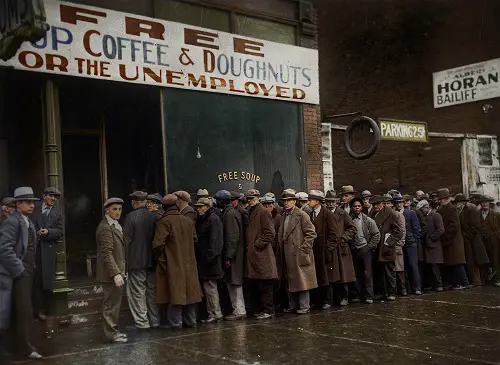
DO YOU HAVE TO SHOW YOUR RECEIPT AT WALMART
I have to admit, one goes through so many emotions when leaving their neighborhood Wal-Mart – (hatred/annoyance/irritation to just name a few) – and this receipt situation does not do it any favors in helping quell those feelings.
With receipt checks becoming a more and more common practice, the subsequent aftermath of customers are left feeling angry, embarrassed, resentful, and volatile when being stopped and harassed for such. Could they actually do this? Was it all legal? I mean, do I really have to show my receipt to the Walmart greeter when I leave?
DO YOU HAVE TO SHOW YOUR RECEIPT AT WALMART
No, you do not have to show your receipt, as you are not legally bound or required to show your receipt to any Walmart associate if you do not wish to, since there is no provision in the law that requires you to stop and do such.
You may simply ignore the greeter and continue walking on. Bear in mind, by not stopping, one could give the store the probable cause they need in asking to stop and detain you, though they would need additional proof.
Greeters will often ask you to see your receipt when you are leaving the store, but in actuality are asking for permission to search your cart. A person would not have to stop unless the merchant had cause to believe the customer took merchandise without paying, hence by not showing your receipt – it is probable cause for shoplifting.
WHAT HAPPENS IF YOU REFUSE TO SHOW YOUR RECEIPT AT WALMART
First, despite what you may hear, one should know that Walmart reserves the right to perform receipt checks, but are entirely voluntary, and Walmart associates can only take action if they have cause to believe you may have shoplifted. They may hassle you, make it a big ordeal, and claim you must cooperate, but ultimately, there is no legal obligation that requires you to show them. In fact, they cannot enforce anything on you.
That said, if one does not comply with a receipt check, Walmart may possibly detain you on a probable cause of theft. Walmart greeters cannot call the police without this probable cause though. Furthermore, Walmart can only detain a suspected shoplifter for a short time until the police arrive. They should also allow you to leave immediately if they ascertain that you have not committed an offense.
Walmart must present specific facts to validate their suspicions of theft, otherwise, they cannot hold you under the shopkeeper’s privilege law.

WHAT IS SHOPKEEPER’S PRIVELEGE
The Shopkeeper’s Privilege gives a store and its employee the right for lawful detention of a suspected shoplifter, when it is reasonably believed that the person in question has committed a theft offense. Therein, it must be done on store grounds, and you can only be held using the Shopkeeper’s Privilege for a reasonable amount of time (generally meant until the police arrive).
The risk of Shopkeeper’s Privilege is that if an employee stops you (detains) without assessing the probable cause carefully, they may be committing the crime of false imprisonment. And if a door greeter is randomly stopping you to check your receipt, they will not have the probable cause necessary for the Shopkeeper’s Privilege.
Obviously, with this type of uncertainty and grey area explanation regarding terms of use, legal repercussions and litigation is a very real after effect.
WHY DOES WALMART CHECK RECEIPTS
Walmart did not always check receipts as regularly as they do now. The main reason why Walmart performs a receipt check is to prevent and deter shoplifting. Walmart had over 1.5 million incidents of theft last year, amounting to over $3.5 billion in losses to the company.
According to a Walmart spokesperson, the intention is to check each and every customer receipt before they leave the store in order to catch any irregularities or discrepancies. Another reason for receipt checks is the transition to predominately self-checkout machines in Walmart’s stores, where the tendency to bag a product from your basket without scanning (whether or not intentional) is a common issue. Ultimately, Walmart just wants to make sure that all merchandise has been paid for.
WHAT IS THE WALMART RECEIPT CHECK POLICY
Once again, although a customer may not be cooperative, Walmart associates reserve the right to to ask and check for a receipt. They ask for receipts to prevent shoplifting, theft, and error.
In most stores, greeters have the leeway to decide when to ask for a receipt or not. Often, they will only do so for big-ticket items like televisions or electronics, and even open items that have not been bagged. How often this occurs in a Wal-Mart store will largely depend on the attitude of the person tasked with checking those receipts. No matter how often they ask for receipts, greeters are prohibited from going any further than this request unless they have reason to believe a theft has occurred.
IS WALMART ALLOWED TO STOP YOU AT THE DOOR
Yes, Walmart may detain you in-store if they suspect you of theft. However, they must present enough evidence and can only detain you until the police arrive.
Generally speaking, a merchant may detain a person for a reasonable time for the purpose of conducting an investigation in a reasonable manner whenever the merchant has probable cause to believe the person to be detained is attempting to unlawfully take or has unlawfully taken merchandise from the merchant’s premises.
What classes as grounds for probable cause will vary and be determined by observations of merchandise being taken, customer / staff statements, odd behavior displayed, tendencies, or surveillance footage.
Once again, since receipt checks are voluntary, Walmart cannot take any further action if you refuse to show your receipt to an associate. However, if they have reasonable suspicion to believe that you have shoplifted, then you can be detained in-store under Shopkeeper’s Privilege laws, but are not legally allowed to call the cops without probable cause.
A Walmart employee is not allowed to force you to comply with their request, use unreasonable force or coercion to make you comply. If an employee uses force to detain you, you may claim false imprisonment against the store, which is a civil violation.
CAN I SUE WALMART

Much like everyone else, Walmart employees have to abide by the law, and employees cannot use force to detain you against your will if you have not stolen anything. Nor can they detain you for an extended period of time, as well as not provide reasonings for the detainment.
As a patron of Walmart, you have the right to:
- refuse to show a receipt at Walmart
- question Walmart’s receipt policy regarding your circumstance
- leave the store without showing a receipt
Bear in mind, this only pertains to people who have not shoplifted, as if you have committed theft or fraud, you lose those rights, and are facing detainment, or worse yet, prosecution. Once again, Walmart store employees can only detain someone in-store if there is reasonable suspicion they stole something, and until the police arrive (a reasonable amount of time).
Lawsuits against Walmart claiming that receipt checking and detainment has violated their 4th Amendment rights and discriminates against the shopper is nothing new, and a growing cause for concern. If you feel like your rights may have been violated, one should seek counsel.
IN CONCLUSION
SHOULD YOU SHOW YOUR RECEIPT AT WALMART
While there is no law backing Walmart’s policy to check receipts, the retailer may argue that it helps curb theft on its side. And not to condone theft of any kind, but at the end of the day, if you have not stolen anything, you may just choose to take a few seconds to show your receipt out of courtesy, and be on your merry way. Thus, having to avoid the potential hassle and drama involving this sticky situation entirely, as it is not always a great idea to resist something even though you have the right.
Please note: This was not legal advice and should not be construed as such. If you feel this is legal advice, you are sadly mistaken. I am not an attorney; I am a Felon. This article is merely a state of comedic opinion for educational purposes only. Always consult an attorney regarding your specific legal situation.
-The Educated Felon












Leave a Comment